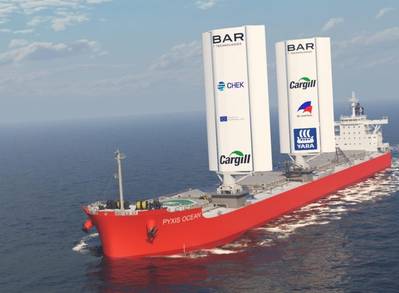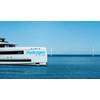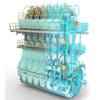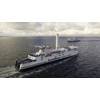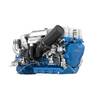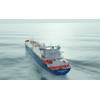Cargill Testing New Sail Technology for Cargo Ships to Cut Emissions
Cargill, one of the world's biggest ship charterers, is stepping up a push to resurrect wind power for cargo ships as the agricultural commodities group moves to cut emissions from its chartered fleet, a top executive said.
With about 90% of world trade transported by sea, shipping accounts for nearly 3% of the world's CO2 emissions, yet environmental campaigners say regulatory efforts by the sector to cut emissions are still slow.
Cargill will test a dry bulk vessel with two wind sails carrying cargo onboard later this year, said Jan Dieleman, president of the group's ocean transportation division. The ship will go into dry dock to mount the sails in the coming weeks, he added.
"The performance of the sails will be closely monitored to further improve their design, operation, and performance," he told Reuters.
"More than ten years ago, we experimented with kites. We learned that they didn't work."
Dieleman said Cargill was also exploring different wind-assisted propulsion technologies, adding that wind would not get the group to a zero-carbon level, but was "a step towards zero".
"We think that wind could probably reduce emissions by up to 20 to 30%. It means that we also could reduce fuel consumption by 20 to 30%, giving us immediate payback on the investment," he said.
The industry has also been testing cleaner fuel options including ammonia and methanol in an effort to move away from dirtier bunker fuel.
Cargill has separately signed a long-term charter deal for two dry bulk ships which can be fuelled by methanol, and will be delivered at the end of 2025 and the start of 2026.
"While we went for methanol, it does not mean we don’t believe in ammonia or anything else," Dieleman said.
"Ammonia is technically feasible. The safety concern has not been completely addressed."
(Reuters - Editing by Jan Harvey)


